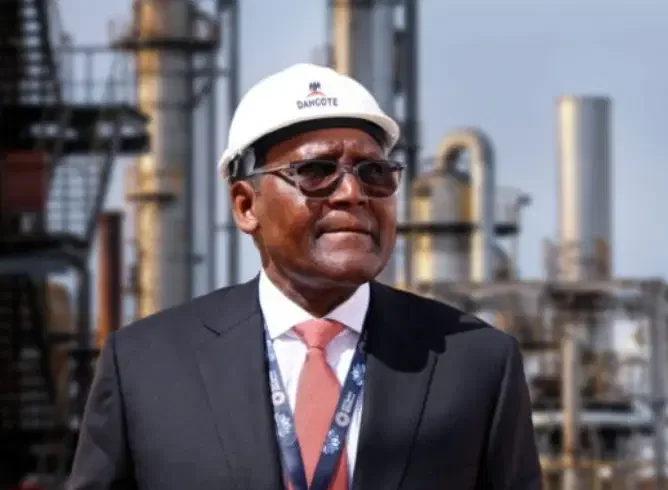Dangote Refinery has condemned the Petroleum and Natural Gas Senior Staff Association of Nigeria (PENGASSAN) for directing a nationwide strike starting today, September 29, 2025.
The refinery claims the union’s actions, including halting crude and gas supplies, endanger Nigeria’s energy stability and the welfare of 230 million citizens.
PENGASSAN’s Claims
On September 27, PENGASSAN instructed its members to stop work at oil and gas facilities, citing the alleged firing of over 800 Nigerian workers at Dangote Refinery for joining the union.
The union further accused the refinery of replacing them with 2,000 foreign workers, mainly from India.
Refinery’s Rebuttal
Dangote Refinery rejected these allegations as baseless, stating it employs over 3,000 Nigerians. It clarified that a small number of workers were let go during a routine internal restructuring, not due to union activities.
“These false claims don’t justify threatening the nation’s fuel supply,” the refinery stated on September 28.
Economic Risks
The strike could disrupt supplies of petrol, diesel, kerosene, aviation fuel, and cooking gas, impacting hospitals, schools, and emergency services.
Dangote warned that such actions threaten Nigeria’s economic recovery and energy independence.
Union Criticism
The refinery accused PENGASSAN of a history of obstructing oil sector reforms, including past refinery privatizations and changes to the Petroleum Industry Act.
It challenged PENGASSAN and NUPENG to disclose their financial records, questioning their use of member dues.
Call for Action
Dangote urged the government and security agencies to safeguard oil facilities, calling the refinery a vital national asset.
“No union is above Nigeria’s interests,” it declared, labeling PENGASSAN’s tactics as bullying.
Broader Context
This dispute follows earlier clashes with NUPENG over labor rights. The strike risks escalating Nigeria’s energy challenges, with potential widespread shortages if unresolved.
Next Steps
Dangote called for dialogue to protect Nigeria’s energy sector. The government’s response will be crucial to averting a crisis in 2025.




















